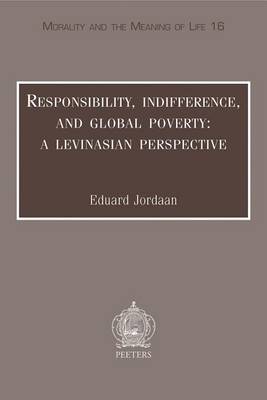Morality and the Meaning of Life
1 total work
v.16
Responsibility, Indifference and Global Poverty: A Levinasian Perspective
by Eduard Jordaan
Published 31 December 2006
Consider the fact that thousands of people die daily from preventable, poverty-related causes through no fault of their own. However, despite our failure to prevent more of these preventable deaths, we generally do not seem to consider ourselves particularly guilty, unjust, bad, immoral or irresponsible for our failure to act. This study attempts to understand our continued good conscience amid the suffering of the world's poorest. In doing so, it draws on Emmanuel Levinas's ethical philosophy to demonstrate how writings in the principal debate about the extent of our responsibility for others at the global level, the so-called 'cosmopolitan-communitarian debate', contain a number of elements that enable and perpetuate our indifference to the world's poorest.
